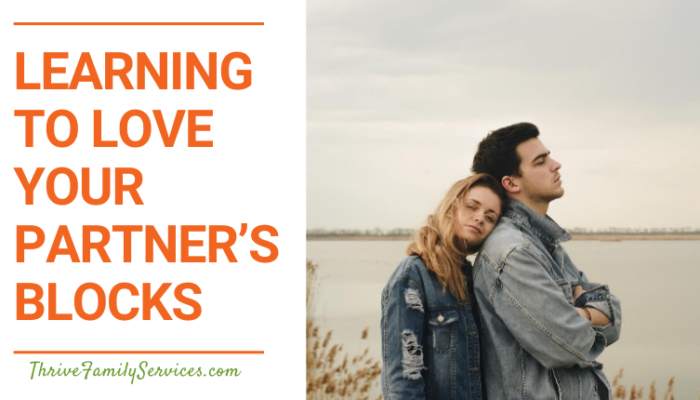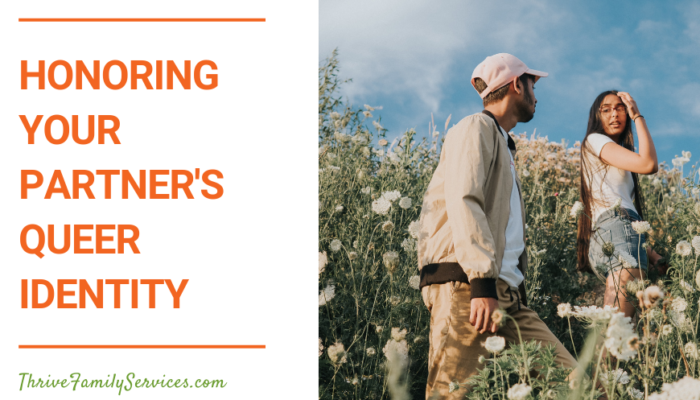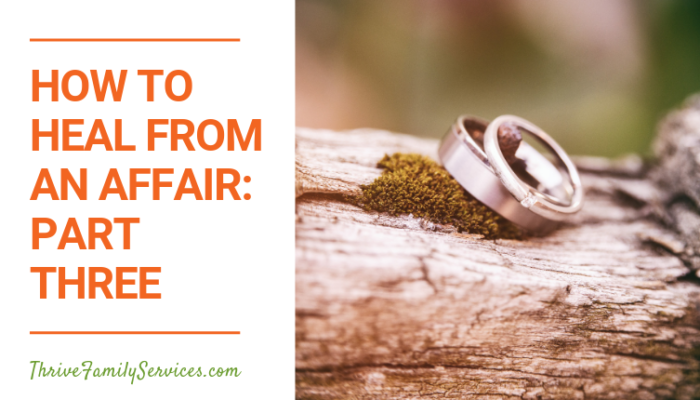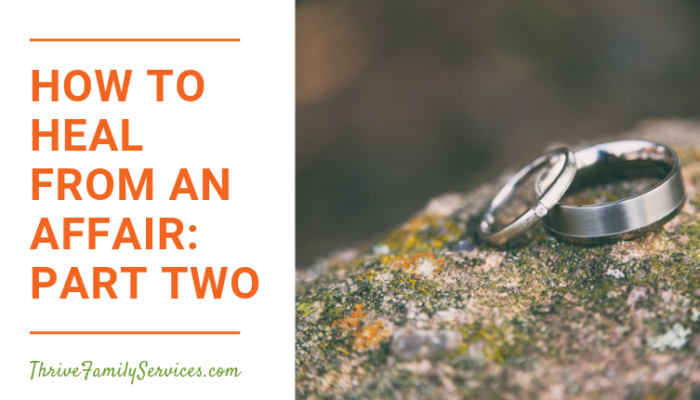If you are in couples therapy, you might have heard your therapist use the term “blocks” before when describing thoughts, worldviews, or behaviors that one of you uses. For example, if your therapist has you turn to tell your partner something in a softer, newer, or different way and your partner has some sort of emotional reaction to it, your therapist might label this as a block.
So, What Are Blocks?
In communication, a “block” is simply any emotional, cognitive, or behavioral reaction that blocks successful emotional intimacy and relationship security. In couple’s therapy, your therapist is trying to facilitate conversations that increase emotional intimacy and security between partners. Your therapist is also looking for the specific obstacles that prevent this from happening. When one of these obstacles comes up, your therapist will probably label this as a block and seek to understand why it exists.
Couples experiencing dysfunction have a negative cycle that keeps them in a place of disconnection. The negative cycle happens when partners are coping with underlying emotions and fears in a way that triggers the other’s underlying attachment fears.
Blocks often perpetuate the negative cycle – or keep it from de-escalating, at least. This is why your therapist wants to see you and your partner turn to each other in therapy and enact your emotions to each other. Blocks show themselves when you are sharing your emotions or listening to someone else share their emotions.
Here are some examples of what a block might sound like:
- “Emotions just interfere with logic. They’re distracting, and you shouldn’t pay attention to them.”
- “If I tell my partner about my stress or anger, it’ll just burden them.”
- “If I want to be heard, I have to be really loud. No one cares about my softer emotions.”
- “What my partner is telling me makes me feel shameful. There’s something wrong with me if my partner is hurting.”
- “We have to agree on everything in order to be compatible. So I defend my position instead of accepting my partner’s point of view.”
- “It is too scary to be vulnerable, so I start a fight when I’m feeling exposed.”
Why Blocks Can Be Frustrating
For most people, running into your partner’s block can be a frustrating experience. When there’s a longing for connection underneath the negative cycle, it is no wonder that it’s frustrating for partners to experience the blocks that prevent connection on a deeper emotional level.
In the majority of relationships, there is one partner who is more concerned with “turning on the emotional heat” to build connection and one partner who tries to “turn down the emotional heat” to prevent disconnection. Even though both of these tasks are in an effort to preserve the connection in the relationship, it can feel frustrating when you and your partner are bumping heads.
This can feel even more frustrating when you are listening to your partner share more of their internal world in therapy if it doesn’t match up with your wishes for the relationship.
Here is an example:
Dwayne and Jackie are currently in couples counseling. Jackie wants to understand why Dwayne seems to freeze every time she shares an emotion. It makes her feel alone when this happens, and she just shared this feeling with Dwayne in therapy.
Dwayne ends up telling Jackie that he learned to fear emotions as a kid. He got in trouble for expressing his emotions, so he had to just freeze any time he started to feel something to protect himself. However, he takes a big risk and is able to tell Jackie that he gets scared when he sees her sad. He shares that he freezes to not make it worse, but because she’s important to him.
Jackie hears about Dwayne’s past and starts to get worried that this is something that will never change. She worries that she will always feel alone in the relationship if Dwayne isn’t able to overcome his freezing response. So she tells him how frustrating it is to hear about his childhood.
In this story, it makes sense why Jackie would be frustrated to find out that her partner freezes in the face of emotion when she wants to connect with him over emotions.
But this also perpetuates the negative cycle.
Why Having Empathy for Your Partner’s Blocks is Important
Let’s continue Jackie and Dwayne’s story to understand why having empathy for your partner’s blocks is important.
After Jackie expresses her frustration in response to Dwayne’s sharing, he goes back to the frozen spot. After all, he learned to freeze to avoid conflict. When he saw that sharing his story made Jackie frustrated, he went back to that emotional place of freezing to not make it worse. In turn, when Jackie sees Dwayne freeze, this reaffirms her fears of being emotionally alone in the relationship.
But what would have happened if Jackie had accessed and shown empathy for Dwayne’s block in being able to receive her emotion?
If Jackie had responded to Dwayne’s explanation for why he freezes with empathy, this would have deescalated the negative cycle.
If Jackie had gotten in touch with empathy for Dwayne’s upbringing and expressed something like, “When you share your inner world, I love it! It helps me understand you so much better,” maybe Dwayne would have been able to stay emotionally present and not go into freeze mode. And if Dwayne hadn’t gone into freeze mode, he might have been able to express empathy for Jackie’s position in the cycle – “I can’t imagine how hard it must be for you to see my freeze every time you get emotional. I don’t want to leave you alone in that place.”
See what a difference empathy can make when you see your partner’s block pop up?
How to Learn to Love Your Partner’s Blocks
The cool thing about blocks is that they aren’t permanent. They exist when someone learned “This is what I have to do to preserve the relationship” while growing up, but they don’t have to use that behavior or worldview in their present relationship because it starts the negative cycle.
If you can remember the good reasons that your partner has for doing what they do – and also remember that the block isn’t permanent – it is a lot easier to show empathy when those blocks pop up.
First, you have to be able to understand why your partner plays their part in the negative cycle. If you don’t understand it or if you just understand the impact of it, it will be impossible to have empathy.
Empathy is the ability to understand and share the feelings of another person.
It does not necessarily mean that you’ve been through the same experience as that person. Rather, it just means you are able to see that person’s point of view and feel their emotional response to it. So, if you don’t understand your partner’s experiences or perspectives that lead to the block, you won’t be able to have true empathy.
Once you feel like you understand why your partner’s block exists, find out what emotion they experience when they are in that spot. Do they get scared? Do they feel helpless? Alone? Sad?
Having a good understanding of why your partner’s block exists and what emotions your partner experiences are the two things needed to start getting in touch with your empathy for them.
Brene Brown says that expressing empathy tells your partner, “I’m in it with you. I’m not here to fix you. I’m not here to feel it for you. I’m here to feel with you and let you know you’re not alone.”
Empathy is the antidote to shame.
It helps people feel seen, validated, and accepted. Showing your partner empathy in the face of their blocks can be a powerful, magical ingredient on the path towards changing your negative cycle.
And remember – blocks don’t have to exist forever. Empathy is the corrective emotional experience needed to help your partner see that they can try things a new way. If you and your partner need help to figure out each other’s blocks in your negative cycle, our Greenwood Village couples counselors can help guide you through.




